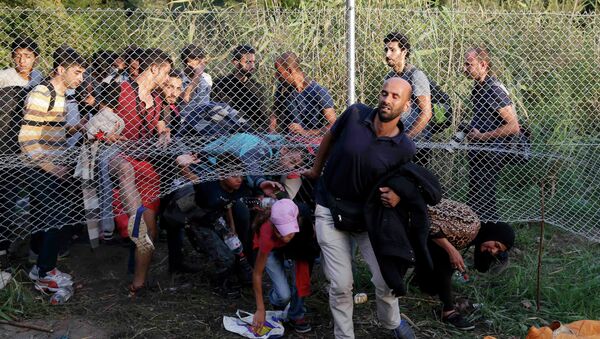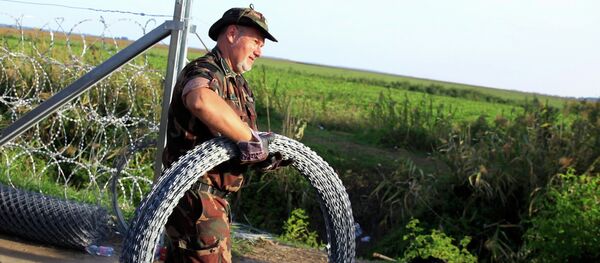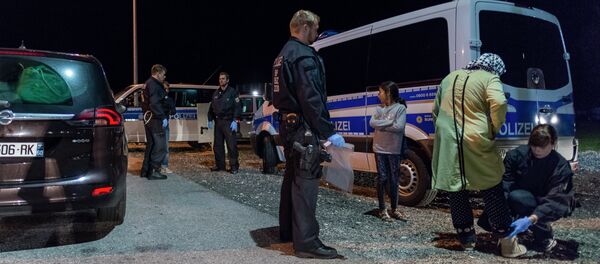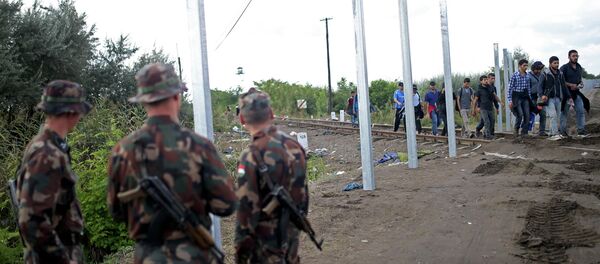Tired-looking people rest on benches or huddle next to small tents in the park near the University of Belgrade Faculty of Economics, as refugee children approach volunteers who bring them clothes and supplies. A lot of people come to their aid, but there is never enough to go round.
"We have to keep telling them that we've got nothing left, that they have to wait some more," says one of the activists who visits the migrants every day and brings them clothes, medicine, diapers and shampoo. "It can’t go on like this. Small organizations simply cannot provide the amount of aid that's needed. I’m not sure what the government strategy is, but soon it's going to be very difficult to maintain control of the situation."
Over 80 percent of the migrants in the park are Syrians, though there are also people from Somalia, Afghanistan, Eritrea and Senegal. Their main concern is how to continue onward. They’re tired but hope that their goal is close. Little do they know that this is just the beginning of a long journey.
"They’re so calm because they got used to just about anything," the mother remarks while looking at her children.
They fled Syria five years after the war began, running away from the battle between Bashar Assad and the Islamic State. It was difficult for them to leave their home country, but they didn’t have a choice.
"Trust me, when peace will come to Syria you won’t see a single Syrian in Europe," they say.
Meanwhile, the volunteers working in the camp are hard pressed to assist the refugees.
"We lack food, medicine, clothes, shoes, translators," says Kemal al-Shairi, an interpreter with the Balkan Center for Migration and Humanitarian Activities. "Politicians come, take photos of everything here and then leave without fulfilling their promises of help. Same deal with the UNHCR."
"The worst thing is when you give a refugee a roll of toilet paper and the man thanks you like you gave him your kidney," he adds. "It makes you realize exactly what these people had to go through."
The EU is tantalizingly close, but on the Hungarian border the refugees encounter the symbol of Europe’s fear of migrants – a tall metal fence erected by the local authorities.
"Serbian cops just shake you down and let you go. You give them 200 euros and they tell you to move along. Hungarian police are bad, they immediately arrest you," he says.
The migrants are afraid of crossing the Hungarian border, Kemal explains, because if the local authorities obtain their fingerprints, then all EU countries save for Germany would deport them back to Hungary. Therefore a lot of migrants prefer to rely on smugglers to enter the country illegally.
A Hungarian peasant selling pepper near the border crossing said that the new fence changes nothing and that just like before, about 150 people pass their village each day. "We give them water and we give them directions," he said. "They mean no harm to anybody."
"People are like water – you can’t stop them," says Kemal when asked what would happen if the Hungarian authorities close the border completely. “No matter what obstacle you create in their path, they’ll find a way to break through."





